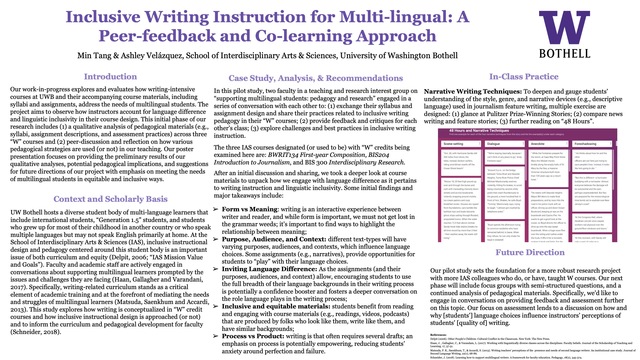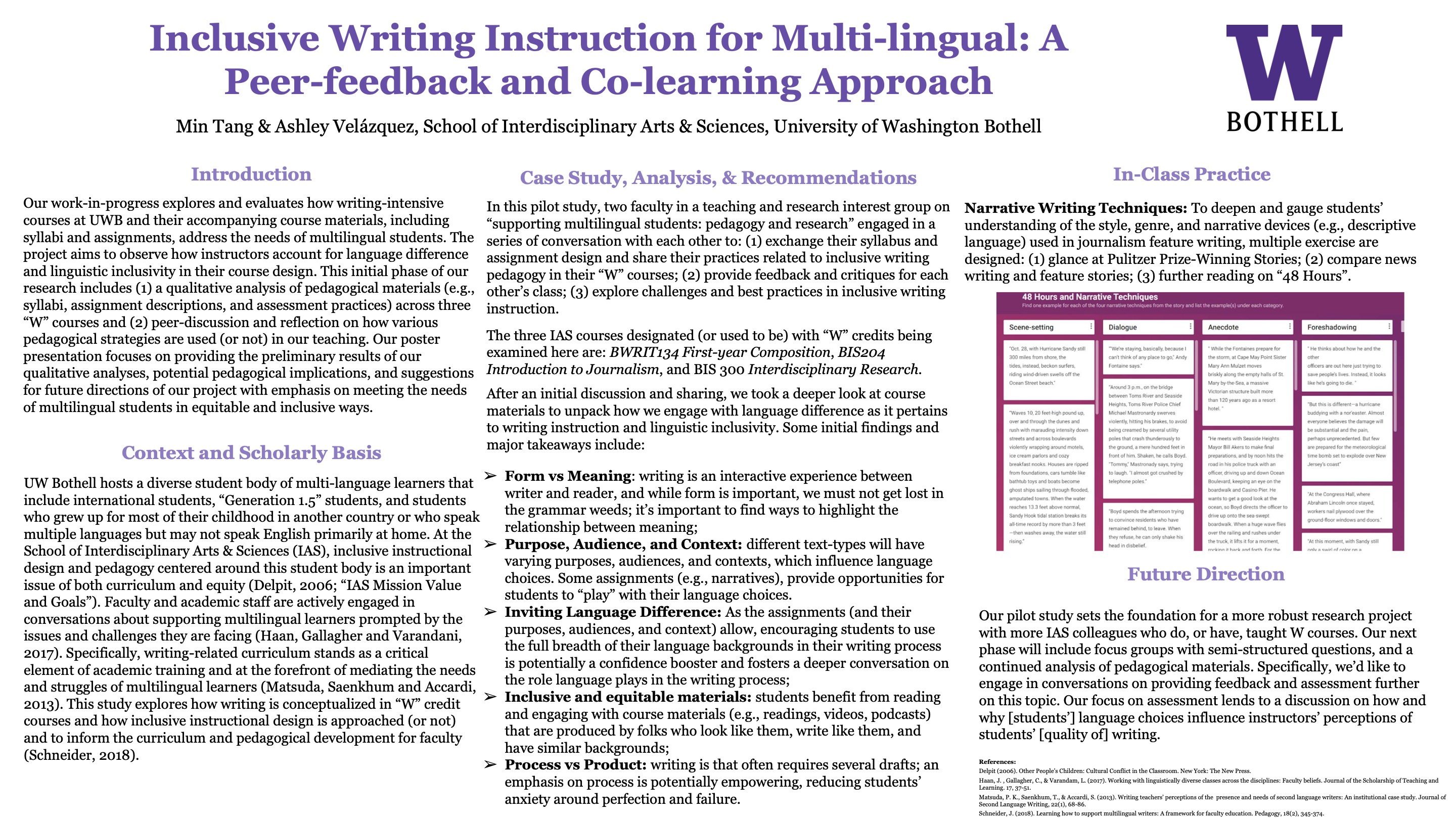Skip to main contentResource added 
This work-in-progress is the initial step of an ongoing project where we qualitatively explore and evaluate how writing-intensive courses at UWB and their accompanying course materials including syllabi and assignments address the needs of multilingual students, observing closely how instructors account for language difference and linguistic inclusivity in their course design. This initial phase of our research includes (1) a qualitative analysis of pedagogical materials (e.g., syllabi, assignment descriptions, and assessment practices) across three “W” courses and (2) focus groups with faculty using a co-learning approach. In this poster presentation, we focus on providing the preliminary results of our qualitative analyses, suggestions for meeting the needs of multilingual students in an equitable and inclusive way, and future directions of our project.
Inclusive Writing Instruction for Multi-Lingual: A Peer-Feedback and Co-Learning Approach

Full description
Video Presentation
Authors:
- Min Tang, School of Interdisciplinary Arts & Sciences, UW Bothell
- Ashley Velázquez, School of Interdisciplinary Arts & Sciences, UW Bothell
Abstract:
UW Bothell hosts a diverse student population of multi-language learners that include international students, “Generation 1.5” students, and students who grew up for most of their childhood in another country or who speak multiple languages but may not speak English primarily at home. As a school dedicated to student-centered and transformative pedagogy, and, equity, diversity and inclusivity (“IAS Mission Value and Goals”), inclusive instructional design and pedagogy centered around this student body is an important issue of both curriculum and equity (Delpit, 2006). Faculty and academic staff are actively engaged in conversations about supporting multilingual learners prompted by the issues and challenges they are facing (Haan, Gallagher and Varandani, 2017). Specifically, writing-related curriculum stands as a critical element of academic training and at the forefront of mediating the needs and struggles of multilingual learners (Matsuda, Saenkhum and Accardi, 2013). This study explores how writing is conceptualized in “W” credit courses and how inclusive instructional design is approached (or not) and to inform the curriculum and pedagogical development for faculty (Schneider, 2018).This work-in-progress is the initial step of an ongoing project where we qualitatively explore and evaluate how writing-intensive courses at UWB and their accompanying course materials including syllabi and assignments address the needs of multilingual students, observing closely how instructors account for language difference and linguistic inclusivity in their course design. This initial phase of our research includes (1) a qualitative analysis of pedagogical materials (e.g., syllabi, assignment descriptions, and assessment practices) across three “W” courses and (2) focus groups with faculty using a co-learning approach. In this poster presentation, we focus on providing the preliminary results of our qualitative analyses, suggestions for meeting the needs of multilingual students in an equitable and inclusive way, and future directions of our project.
Poster PDF
View a PDF version of the poster in Google Drive to enlarge the image or download a copy.
Comments
The presenter for this poster will be available to respond to comments during Poster Session 1 on April 20, 2:00-2:50 p.m.Comments
to view and add comments.
Annotations
No one has annotated a text with this resource yet.
- typeImage
- created on
- file formatjpg
- file size1 MB
- publisherUniversity of Washington
- rights


